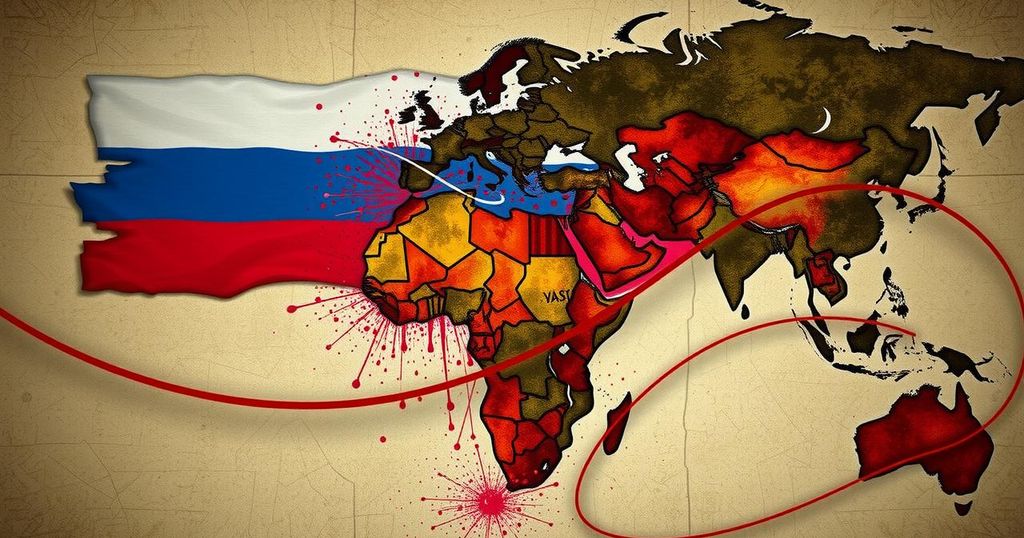The fall of Syrian President Bashar al-Assad has exposed weaknesses in Russia’s military and diplomatic strategy, compromising its ability to project power and influence in Africa. As it withdraws from key bases in Syria, Russia’s logistics for support operations in Africa are jeopardized, prompting a reevaluation of its engagement strategies across the continent. The change may shift Moscow’s focus towards using soft power to maintain its influence among African states.
The collapse of Russian influence in Syria has significantly undermined Moscow’s strategic interests in Africa. Previously seen as a strong power in the Middle East, Russia’s inability to support its ally, Bashar al-Assad, raised doubts concerning its effectiveness as a protector for African autocracies. Following substantial military overextension in Ukraine and subsequent failures in Syria, Russia is expected to withdraw from its remaining bases in the region, further diminishing its logistical support capability for operations in Africa.
The loss of critical infrastructures such as the Tartus naval base and Khmeimim air base puts considerable strain on Moscow’s ability to supply arms and personnel to its partners in Africa, particularly in volatile regions like Libya, Sudan, and Mali. Russian military interventions in these countries had initially been facilitated by the robust logistical networks established via Syria, now jeopardized by the outcome of the Syrian civil war.
The Kremlin faces a daunting task of reinvigorating military operations and influence in Africa against the backdrop of these developments. Actions show that Russian officials recognize Syria as pivotal for operations in Africa, often viewing it as a “jump-off point”. As the Kremlin reassesses its strategy, it must consider flexible partnerships and re-engaging with the new Syrian authorities to preserve its tactical foothold.
Moreover, despite potential logistical alternatives in Libya or Sudan, practical challenges render these options less feasible, as neither territory offers the same strategic advantages as Syria. This has compelled Moscow to pivot towards soft power tactics in Africa, hoping to maintain influence through economic ties and regional partnerships rather than direct military engagement.
Finally, the implications of Assad’s downfall extend beyond military strategy and affect the perception of Russian power. African leaders may reconsider their reliance on Russia, with the fall of Syria serving as a critical juncture in evaluating Moscow’s promise as a security provider in the continent’s uncertainties.
This article delves into Russia’s diminishing influence in Africa, primarily as a consequence of its faltering position in Syria during the Syrian civil war. The Kremlin’s military engagements are closely linked, with the outcome of conflicts in Syria significantly affecting its capacity to project power and support allied regimes in Africa. The shift reflects broader geopolitical dynamics, where Russia’s past military interventions in the Middle East had served as a model for its strategies in Africa. The changing circumstances call for a reassessment of Russia’s role on the global stage, notably in regions where it had previously aimed for greater influence.
In summary, the recent setbacks experienced by Russia in the Middle East, particularly regarding the loss of vital strategic bases, highlight significant challenges for its influence in Africa. As the Kremlin grapples with a reputation tarnished by these events, its capacity to project power and serve as a reliable ally for African regimes is increasingly brought into question. Moving forward, Russia may need to adopt alternative strategies, concentrating more on diplomatic and economic means rather than military support in its quest to maintain influence across Africa.
Original Source: foreignpolicy.com






